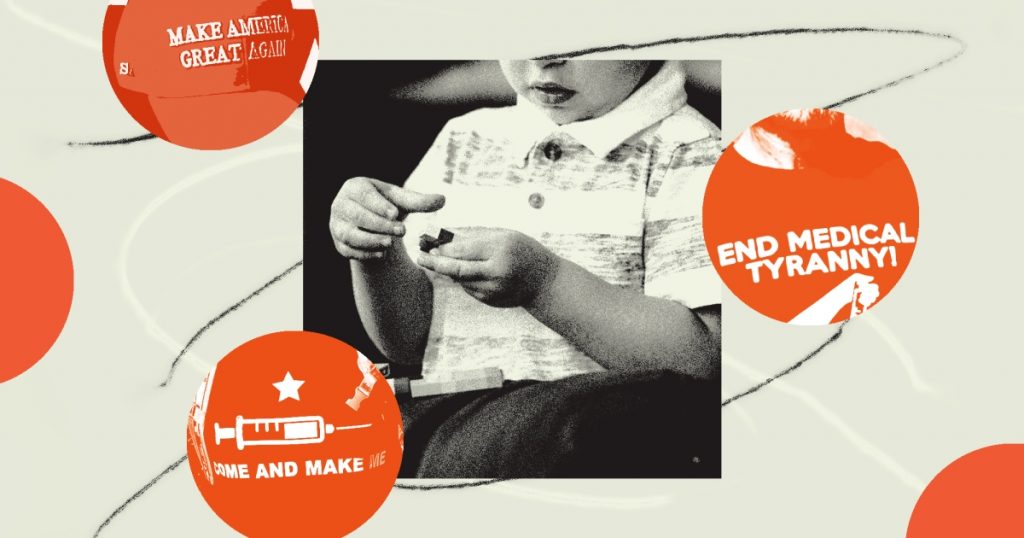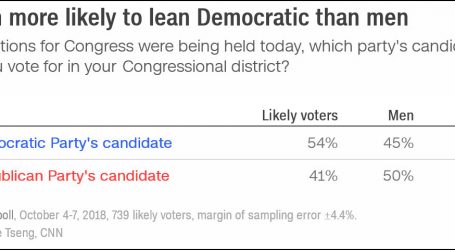How MAGA Conspiracies Infected Autism Groups
Fight disinformation: Sign up for the free Mother Jones Daily newsletter and follow the news that matters.By any measure, Stephanie Seneff is an accomplished scientist. A senior researcher at Massachusetts Institute of Technology’s Computer Science and Artificial Intelligence Laboratory, she’s been a leader in the emerging field of computer response to human speech. After earning two PhDs from MIT in the early ’80s, in the following decades she paved the way for the scientists who worked on virtual assistants like Alexa and Siri. In 2012, Seneff’s many achievements earned her the honor of being named a fellow of the International Speech Communication Association, a professional society for researchers in the field.
Many of Seneff’s MIT lab mates and former graduate students have continued to make breakthroughs; some have gone on to careers at the many tech companies eager to hire scientists with expertise in artificial intelligence. But Seneff has spent the last ten years going in a different direction, publicizing her theory that exposure to minute amounts of the weedkiller glyphosate—commonly known by the brand name Roundup—causes a host of neurological conditions, especially autism. Known as a spectrum disorder, autism manifests in a range of neurological diagnoses that run the gamut from subtle brain differences and trouble reading social cues to significant communication challenges. In a 2014 conference presentation, Seneff predicted that because of the ubiquity of glyphosate, half of all children born in 2025 would eventually be diagnosed as autistic. Since then, she often has repeated this claim in interviews and speeches, warning a tidal wave of autism cases was just around the corner.
It doesn’t look like Seneff’s forecast will pan out. Today, according to the Centers for Disease Control and Prevention, one in 36 children are autistic. And Seneff’s theory has been widely discredited: There is no evidence that glyphosate exposure causes autism. But the scientific consensus has not stopped her from airing her beliefs on social media and becoming a sought-after speaker at conferences. In 2020, with the onset of the pandemic, she broadened her Roundup theory to include vulnerability to the coronavirus, making the completely unsubstantiated claim that Americans were getting more serious cases of Covid than their international counterparts because glyphosate exposure weakened the immune system and increased the risk of severe infection.
For a quarter of a century, proponents of unproven autism treatments have overlapped with anti-vaccine activists. The vaccine skepticism movement took off after British physician Andrew Wakefield published a study in 1998 suggesting that routine childhood vaccinations caused autism. That study was later found to be fraudulent, the paper retracted, and Wakefield barred from practicing medicine in the United Kingdom. Nonetheless, the myth of vaccines causing autism persisted and has been amplified by organizations like Robert F. Kennedy Jr.’s Children’s Health Defense and celebrities including Jenny McCarthy, and Oprah Winfrey. Even the largest and most powerful autism advocacy organization, Autism Speaks, which was founded in 2005 and today runs a $50 million budget, did not officially distance itself from vaccine skepticism until 2015. Over the last few decades, many groups and individuals who spread falsehoods about vaccines as the cause of autism began to promote unproven and sometimes dangerous treatments for it—special diets, supplements, cleanses, and pricey medical spa experiences.
This world of dubious autism treatments used to be mostly limited to private social media groups and conferences. Indeed, beginning about a decade ago, the very notion of autism as a disorder began to lose currency among many autistic people and scientists who study autism: They started to view the condition not as an affliction, but rather as an innate brain difference. Autistic people experience the world differently, and that difference, they say, is something to be honored rather than treated.
There is some controversy around this idea: Because the spectrum is so broad, some parents of nonverbal autistic people, for example, argue that their children’s condition can’t be compared to that of someone with slight social differences. Still, the idea that autism was a scourge to be vanquished seemed to be on its way out. As journalist Steve Silberman, author of the landmark 2015 book on neurodiversity NeuroTribes put it, “One way to understand neurodiversity is to think in terms of human operating systems—just because a PC is not running Windows doesn’t mean it’s broken.”
Then came the pandemic—and with it, a setback for the burgeoning autism acceptance movement. Over the last three years, advocates of unproven autism treatments have found powerful allies and new recruits in Covid-related conspiracy groups. Likewise, pandemic conspiracists have begun to attend autism treatment conferences, finding receptive audiences for their theories about Covid being a government plot. The two groups are enjoying a fruitful symbiotic relationship, with each amplifying the other’s ideas and benefitting from the exposure, says Melissa Eaton, an autism-acceptance advocate in North Carolina who monitors the spread of unproven treatments on social media. “There’s always been that market of quackery for parents of autistic children,” she says. “And then when Covid took off, it’s like all these groups have kind of banded together. And it’s actually grown.”
That dynamic has propelled Seneff back into the spotlight. Just a few years ago, she peddled her autism theories only to the fringiest of audiences, but now, the MIT scientist, now 74, has gained new currency and a bigger platform by incorporating Covid into her theories. In January 2022, she told Fox News host Laura Ingraham that parents should do “absolutely everything they can” to avoid giving children Covid vaccines. Three months later, she co-published a paper with anti-vaccine leader Dr. Peter McCullough, a cardiologist and leader in the movement against Covid vaccines. The two used unverified data from the Vaccine Adverse Events Reporting System to bolster their claim that Covid vaccines cause neurodegenerative disorders, liver disease, and cancer, among other serious conditions. In July, she appeared on a show on the network of Stew Peters, the far-right, live streamer and former bounty hunter who has claimed that Covid vaccines cause deadly blood clots. Then, an interview with her was aired on Red Voice Media, known for platforming conspiracy content.
Stephanie Seneff
Mother Jones illustration; WikimediaWhen Mother Jones asked Seneff about her decision to appear on these shows, she responded in an email, “I appreciate the fact that the Far Right has taken a stance against this very dangerous mRNA technology.” She added, “I have been a Democrat all my life, but at the moment I would describe myself as being so disenchanted with the government that I support no political party. I would probably vote for Ron DeSantis if he were to run on a Republican ticket.”
The result of cross-pollination between Covid and autism, says Canadian autism-acceptance activist Anne Borden King, who is working on a book about unproven autism treatments, is an explosive blending of disinformation. As the anti-vaccine movement has increasingly tacked right in recent years, the true believers in autism cures have aligned themselves with the political right. “If it’s a conspiracy that they’re covering up the vaccines causing autism, then it’s also a conspiracy that Bill Gates is involved in the Covid vaccines, and it’s also a conspiracy that Joe Biden won the election,” says King, who is herself autistic. “It’s the perfect storm for right-wingers to recruit.”
Back in the early aughts, the autism-vaccine myth was largely aligned with the political left—vaccination rates were lowest, studies found, among self-proclaimed “health nuts” in liberal enclaves like Boulder, Colorado, and Marin County, California. Yet there was always a right-wing strain, mostly from libertarians who saw vaccination requirements for school as an example of government overreach. In the years before he became president, Donald Trump was quite vocal about his belief that vaccines cause autism. In January 2017, even before being sworn into office, he met with Robert F. Kennedy Jr. about the possible formation of an autism commission. The commission never materialized, but a few months later, Trump proclaimed April 2 as World Autism Awareness Day, affirming his commitment to “encouraging innovation that will lead to new treatments and cures for autism.”
At the beginning of the Trump presidency, even before the pandemic began, there were signs of a rightward creep. Hardly anyone was documenting this trend at the time, but there’s a clear record of it in the schedules of the popular annual conferences of an organization called AutismOne. Founded 20 years ago in Southern California, the group, which didn’t respond to our request for comment, was originally the project of Ed Arranga, a software engineer who retired in 2002 to focus full-time on curing his son’s autism. Though physicians told him that his son’s condition was genetic, Arranga refused to believe them and devoted his life to researching potential remedies. Arranga died in 2021, but the group lives on, according to its website, to “help children and their families achieve improvement and recovery from an autism diagnosis.” In practice, however, AutismOne acts as a kind of clearinghouse for anti-vaccine advocacy and questionable autism treatments, including special diets, supplements, and cleanses.
AutismOne’s annual budget is modest—around $300,000, but the group’s impact is far greater than its assets. Thousands of people attend its conferences, and it claims to educate “more than 100,000 families every year about prevention, recovery, safety, and change.” In the pre-Trump years, its yearly summit—which it bills as the “world’s largest and most-comprehensive annual autism conference”—seemed designed to appeal to the woo-woo and new-age corners of the left. The 2012 event, for example, featured sessions on curing autism with green interior design, organic gardening, and homeopathy. Seneff, who has warned about the dangers of weedkillers at the conference every year since 2014, fit right in.
By 2018, the language of the libertarian health-freedom movement began to appear. A panel that year called “Understanding Constitutional and Civil Rights as Applies to Personal Health Issues” featured a Texas attorney named Travis Middleton, who in 2016 had sued California Sen. Richard Pan over the removal of religious exemptions for childhood vaccine requirements. Another session, confusingly billed as “Vaccines and the Planned Singularity—Not On My Watch,” offered to educate attendees on how “Vaccines are just one of multiple strategic weapons being deployed in advancing the transhumanist agenda by the new breed of space-age technocrats.”
But the AutismOne summit really went off the rails the following year. In a 2019 Jezebel piece, journalist Anna Merlan recounted the story of getting kicked out of the conference by security guards who worried that she would write something unflattering. “At least three sessions this year,” she wrote, “focused on how to communicate with legislators and effectively lobby them—by downplaying their beliefs about vaccines and focusing instead on the angle of ‘medical freedom’ and choice.” That year’s lineup included a session called “The Bigger Picture,” featuring a panelist named Dustin Nemos, a notorious QAnon conspiracy theory evangelist.
By the time 2020’s virtual summit rolled around, AutismOne had begun to dabble in Covid disinformation. A former virologist and AutismOne conference veteran named Judy Mikovits had just struck it big with her viral video “Plandemic,” about how the government had supposedly orchestrated the pandemic in order to control citizens. That year, Andrew Wakefield, whose discredited study began the whole autism and vaccine furor, spoke—not about autism, but rather “the real history of the coronavirus.”
Politicians at the highest levels had been paying attention to these true believers. In an April 2020 coronavirus task force briefing, President Donald Trump suggested that scientists investigate the possibility of treating Covid patients with disinfectant. “And then I see the disinfectant where it knocks it out in a minute,” he said. “One minute. And is there a way we can do something like that, by injection inside or almost a cleaning?”
Trump didn’t come up with this outlandish idea on his own. In early 2020, a Florida-based group called Genesis II Church of Health and Healing began claiming that ingesting its patented spray called Miracle Mineral Solution, or MMS, based on chlorine dioxide—basically bleach—could prevent Covid infection. The group, which was founded in the early aughts by entrepreneur Mark Grenon, had long been promoting its use for a grab-bag of other conditions, from HIV to cancer to autism, to the tune of tens of thousands of dollars a month in revenue. Genesis II wasn’t actually religious; Grenon called it a “church” for “the express purpose of cloaking their unlawful conduct’ by framing all of their activities as protected religious freedoms,” the Washington Post reported.
In 2010, after dozens of reports of serious injuries and two deaths of people who drank MMS, the FDA issued an official warning about the substance, noting that it could cause “severe nausea, vomiting, and life-threatening low blood pressure from dehydration” and advising consumers to “stop using it immediately and throw it away.” The report did nothing to discourage MMS enthusiasts from continuing to promote it widely. A 2015 Vice investigation profiled a prominent leader of these groups: a Chicago-based Genesis II bishop and AutismOne featured speaker named Kerri Rivera, who, according to reporting at the time, was offering $100-an-hour consultations on how best to use a chlorine dioxide MMS protocol on autistic children and infants.
The treatment was controversial even among the more credulous followers of AutismOne, some of whom circulated a petition to ban Rivera from the 2015 conference. “She feeds off the desperation of parents of children on the spectrum to cure them,” one signatory wrote. “Please stop her.” The petition appears to have been successful—Rivera didn’t speak at that year’s conference, nor subsequent ones. In 2016, Rivera agreed not to sell MMS in the state of Illinois, but her social media presence only grew. A 2019 Business Insider investigation turned up a robust network of groups dedicated to MMS, including including one named “Kerri Riverra’s CDautism.” In some groups, parents posted disturbing photos of their children with lesions and rashes, and the bloody feces they developed after their bleach treatments. Group members offered instructions for hiding their use of MMS on children from Child Protective Services. (Rivera didn’t respond to Mother Jones‘ questions for this article.)
In early 2020, Rivera began touting MMS as a Covid cure. That September, the FDA warned Rivera to “stop recommending that consumers take chlorine dioxide, alone or mixed with any other substance, for any medical use.” The next year, the family behind the Genesis II church was indicted for selling MMS as a Covid cure. Mark Grenon and his son, who had moved to Colombia to set up their MMS business there, were extradited to face trial in Florida. (The case is still ongoing.) All of the media attention on MMS was not a good look for Rivera, and Facebook began cracking down on MMS posts. Yet her groups are still thriving on right-wing platforms like Telegram.
A few months before AutismOne’s 2021 event, the group posted a big announcement on Facebook. “We are delighted to announce the triumphant return of Kerri Rivera to AutismOne,” the post said. “Kerri will share great news about her work and Covid-19.” Rivera was in good company. At the 2021 event, which was held at an evangelical church in California’s Orange County, Judy Mikovits was back as a panelist in a session about “the physiology & psychology behind the Covid-19 fear-baiting practice.” Andrew Wakefield’s talk focused on how “Covid-19 is not an accident, it was 50 years in the making.” Other presenters railed against the raft of culture war tropes that had gained currency during the pandemic: “cancel culture,” religious freedom, and “medical totalitarianism.”
At the 2022 conference, Del Bigtree, founder of the anti-vaccine group Informed Consent Action Network and producer of the film Vaxxed, delivered a keynote titled “No More Dark Winters,” a full-throated endorsement of the “great reset” conspiracy theory that the pandemic was being exploited by the World Economic Forum in order to gain control over citizens. “Recreating a country where people will be stripped of their right to property ownership and where the US is no longer a leading authority in the world, is not in my mind, a positive change for us or future generations,” he wrote to Mother Jones in an email. In a unique and elaborate conspiratorial twist, he speculated that former president Trump first rolled out the Covid vaccine to medical professionals as a way of punishing them. Maybe, he said, Trump was actually just “the smartest, most pissed-off autism dad ever.” (Bigtree was ostensibly referring to media speculation that Trump’s youngest son, may be on the autism spectrum, which the Trump family has repeatedly denied; Bigtree wrote in his email to Mother Jones that his comment had been a joke.)
Meanwhile, promoters of unproven autism cures were finding a new audience. In 2021, a far-right Oklahoma-based influencer named Clay Clark organized what would later become known as the ReAwaken America Tour, a series of events across the country that brought together Christian nationalists, QAnon enthusiasts, and Big Lie believers. Speakers included marquee headliners like disgraced MAGA-world former national security adviser Lt. General Michael Flynn, MyPillow CEO Mike Lindell, and Eric Trump.
A lesser-known presenter was Tracy Slepcevic, a California mother who claims she cured her son’s vaccine-induced autism. Last year, Slepcevic was a featured speaker on the ReAwaken America tour where she hawked her new book, Warrior Mom: A Mother’s Journey in Healing Her Son With Autism, with an introduction by Andrew Wakefield. In December, Slepcevic was interviewed by Stew Peters. She told Peters the story of her son’s “recovery” from autism with supplements and diets. In January, Michael Flynn promoted Slepcevic’s book, tweeting “check out this e-book for only $.99 cents on how one Mama Bear nurtured her son back to health from autism resulting from a jab!”
The growth of the audience committed to autism cures frustrates advocates of the neurodiversity movement. Before the pandemic, they had begun to make some inroads with some of the groups that had been promoting supposed cures—some were beginning to acknowledge the fact that not every autistic person wants to be “cured.” In 2019, for example, an influential Southern California-based group called “Talk About Curing Autism” changed its name to “The Autism Community in Action.” Around the same time, a UK group called “Treating Autism” changed its name to “Thinking Autism.”
Yet autism-acceptance advocates note that the groups’ apparent awakening seems to have stopped with their names. Not only do they persist in the notion of autism as an illness, but they also now endorse many of the same dubious treatments that the AutismOne crowd embraces. Thinking Autism promotes oxytocin nasal spray, stem cells, and fecal transplants, among other fringe treatments. Meanwhile, the Autism Community in Action’s current roster of experts includes the CEO of a company that sells a foot detox machine, a naturopath who hawks a “guaranteed protocol of natural supplements to support your child’s language development within 30 days!”, and the owner of a spa that offers electromagnetic field therapy for autism. Its physician advisory committee includes Dr. Bob Sears, who railed against pandemic safety measures and was disciplined by the California Medical Board for issuing questionable medical exemptions for vaccines. In an email to Mother Jones, Thinking Autism chair Anita Kugelstadt clarified that the group had changed its name because it does not provide autism treatments. She added, “While there is strong evidence to show that people diagnosed with ASD can enjoy improved quality of life with appropriate treatments for their symptoms, many of those symptoms reflecting comorbidities common in ASD, as of now there is no treatment for autism.” The Autism Community in Action didn’t respond to a request for comment.
Melissa Eaton, the autism activist who monitors social media groups, says the people who promote dubious treatments “really have fueled this problem because they created a tragedy narrative of autism.” Panicked parents of autistic children, she says, are the perfect targets. “They’re kind of egged on. It just becomes this quest to remove autism from their child—which is not something that you can do.” Indeed, influencers on social media have challenged the autism acceptance movement, urging parents to reject the notion that their child can’t be cured. As one essential oils saleswoman told her 39,000 followers recently on Facebook, “Once you question the label instead of embracing it, you can believe in healing—whatever that looks like for your journey and your child. Dig deeper.”
Of course, there are evidence-based therapies that some autistic people find helpful. But thanks to Covid, fringe treatment groups now have a much bigger platform to promote the idea that autism must be driven out—which makes it harder for researchers who are focused on autistic well-being, says Shannon Des Roches Rosa, co-founder and senior editor of the autism blog Thinking Person’s Guide to Autism. “Only a tiny percentage of resources are allotted to autistic quality of life and well-being,” she says. “Almost all of it is allotted to causation and cure and treatment.” Indeed, a 2021 study in the Journal of Autism and Developmental Disorders found that while about half of NIH autism funding goes to research on treatments and cures, research on services for autistic people made up only 9 percent of the total expenditures.
In November 2022, after her “triumphant return” to AutismOne, Rivera hosted a three-hour virtual conference on the far-right platform Brighteon. Titled “Save the Children” (also a motto of QAnon adherents who believe in a secret ring of elite pedophiles), the conference ran the gamut of autism conspiracy theories. Judy Mikovits told viewers, cryptically, that “the blessing of Covid is that we appreciate that neuroimmune diseases are molecules of emotion, just like AIDS.”
Another speaker was Christopher Key, an anti-vaccine activist who in 2021 told pharmacists at a Missouri Walmart that they “could be executed” for “crimes against humanity” for administering vaccines, according to several news outlets. Last year, he claimed that ingesting urine could cure Covid. (Key didn’t respond to our request for comment.) A regular guest on Stew Peters’ show, at the Brighteon conference, Key told viewers, “God has put me here to help God’s people and God’s children…Christ is in my name, Christopher.” He warned the crowd that “the satanic Luciferians are coming for all of God’s children” in the form of Covid vaccines, which, he said, would kill anyone who took them “in two to five years.” He told parents of autistic children that they needn’t worry, because they could be healed; his Florida wellness clinic, he said, treats children through “fellowship and frequency.” Seneff also appeared, offering a hard-to-follow presentation in which she claimed that chlorine dioxide supposedly counteracts the deleterious effects of Roundup in the microbiome of autistic people.
Thanks to the new prominence of autism conspiracy theorists like Stephanie Seneff, the AutismOne crowd is taking a victory lap. In his keynote address at the 2022 conference, Del Bigtree marveled at the recent growth of the anti-vaccine movement. “Politicians are now stumping to us,” he said—perhaps a subtle reference to Ron DeSantis, who has recently disavowed Covid vaccines, likely as part of an effort to distinguish him from former President Trump in the run-up to the 2024 presidential election. “They’re begging to be on our stages,” Bigtree continued. “There are enough of us now that they need our votes. That is so astronomically different from where we were in 2016.” Toward the end of his speech, he bellowed, “They brought their best, they brought their brightest, they sat in the think tank for three days and said, ‘How are we going to stop vaccine hesitancy?’” He jumped up and down on the stage, fists pumping. “They had billions and billions of dollars spent to do it, and in the end, we won!” he yelled. “Bam!”
Top: Mother Jones illustration; Caleb Woods/Unsplash; Chip Somodevilla/Getty; Tayfun Coskun/Anadolu/Getty; Matthew Rodier/Sipa/AP





